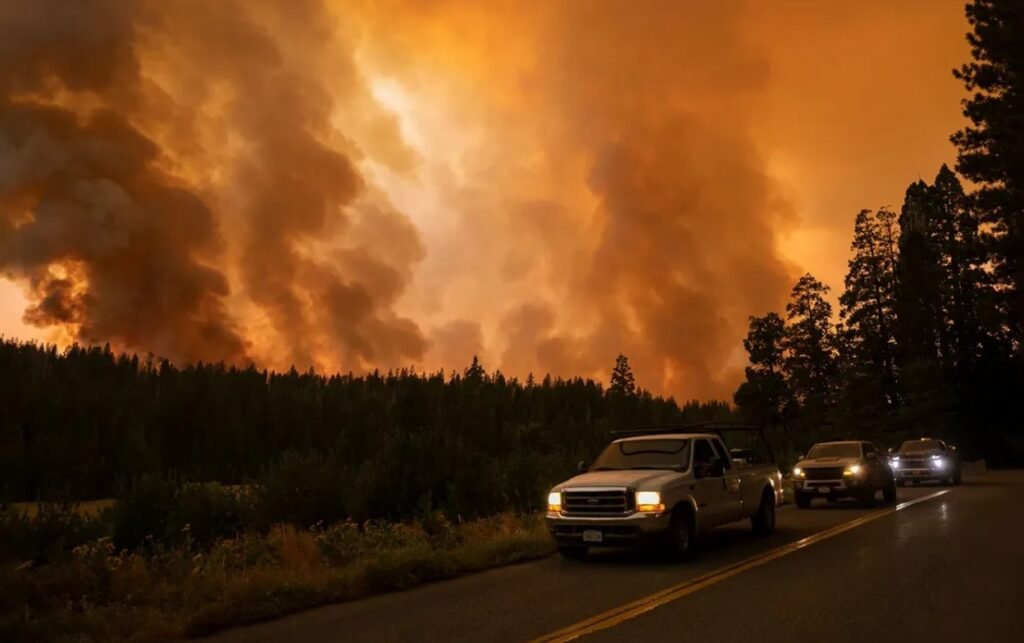The insurance industry is one of the pillars of modern society, providing financial protection and stability to millions of people and businesses. But as climate change worsens, the industry faces unprecedented challenges and risks. Natural disasters, such as hurricanes, wildfires, floods, and droughts, are becoming more frequent and severe, causing billions of dollars in losses every year. The insurance industry is struggling to cope with the rising costs and uncertainties of these events, which could have dire consequences for its customers and the economy.
The Rise of Catastrophic Losses
The insurance industry operates on the principle of pooling risk: by collecting premiums from a large number of customers, it can pay out claims to those who suffer losses from unforeseen events. The industry relies on historical data and statistical models to estimate the probability and magnitude of such events, and to set adequate premiums and reserves.

But as climate change intensifies extreme weather and claims pile up, this system has been thrown into disarrayInsured losses from natural disasters in the U.S. now routinely approach $100 billion a year, compared to $4.6 billion in 2000. As a result, the average homeowner has seen their premiums spike 21 percent since 2015.
Some insurers have stopped offering coverage in high-risk areas, such as coastal regions or wildfire-prone zones, leaving millions of people uninsured or underinsured. Others have raised their deductibles or excluded certain perils from their policies, shifting more of the burden to their customers. Some have even gone bankrupt or exited the market altogether, reducing competition and choice.
The Impact of Climate Change on Insurance Models
One of the main challenges that climate change poses to the insurance industry is the uncertainty and unpredictability of future events. Climate change is altering the frequency, intensity, duration, and location of natural disasters, making them harder to model and anticipate.
For example, hurricanes are becoming more powerful and destructive due to warmer ocean temperatures and higher sea levels. Wildfires are spreading faster and farther due to hotter and drier conditions. Floods are becoming more frequent and severe due to heavier rainfall and melting glaciers. Droughts are lasting longer and affecting more areas due to reduced precipitation and increased evaporation.
These changes are not only affecting the physical environment, but also the human behavior and exposure. People are moving to more vulnerable areas, such as coastal cities or urban sprawls, increasing their exposure to natural hazards. People are also consuming more energy and resources, increasing their greenhouse gas emissions and contributing to climate change.
The insurance industry is trying to adapt to these changes by using more sophisticated data and models, such as catastrophe modeling, which simulates the impact of different scenarios on insured assets. The industry is also investing in climate research and innovation, such as developing new products and services that address climate risks or promote resilience.
However, these efforts are not enough to keep pace with the rapid and complex changes that climate change brings. The insurance industry faces significant gaps in data availability and quality, as well as limitations in modeling techniques and assumptions. The industry also faces regulatory and legal uncertainties, such as how to account for climate change in pricing and reserving policies, or how to deal with litigation and liability issues arising from climate-related losses.
The Implications of Insurance Failure for Society
The insurance industry plays a vital role in society by providing financial security and stability to individuals and businesses. The industry also supports economic growth and development by enabling investment and innovation, as well as facilitating trade and commerce.
But if the insurance industry fails to cope with climate change, it could have serious implications for society. Without adequate insurance coverage, people could face financial ruin or hardship if they suffer losses from natural disasters. Businesses could face operational disruptions or bankruptcy if they incur damages or liabilities from climate-related events. The economy could suffer from reduced productivity or output if critical infrastructure or assets are destroyed or impaired by extreme weather.
Moreover, without effective insurance mechanisms, society could lose its ability to prevent or mitigate climate risks. Insurance can act as an incentive or a deterrent for people to adopt more sustainable practices or behaviors, such as reducing their carbon footprint or enhancing their resilience. Insurance can also act as a catalyst or a facilitator for innovation or adaptation, such as developing new technologies or solutions that address climate challenges.
Therefore, it is essential that the insurance industry adapts to climate change and continues to provide its valuable services to society. It is also important that society supports the insurance industry by taking collective action to reduce greenhouse gas emissions and limit global warming.
